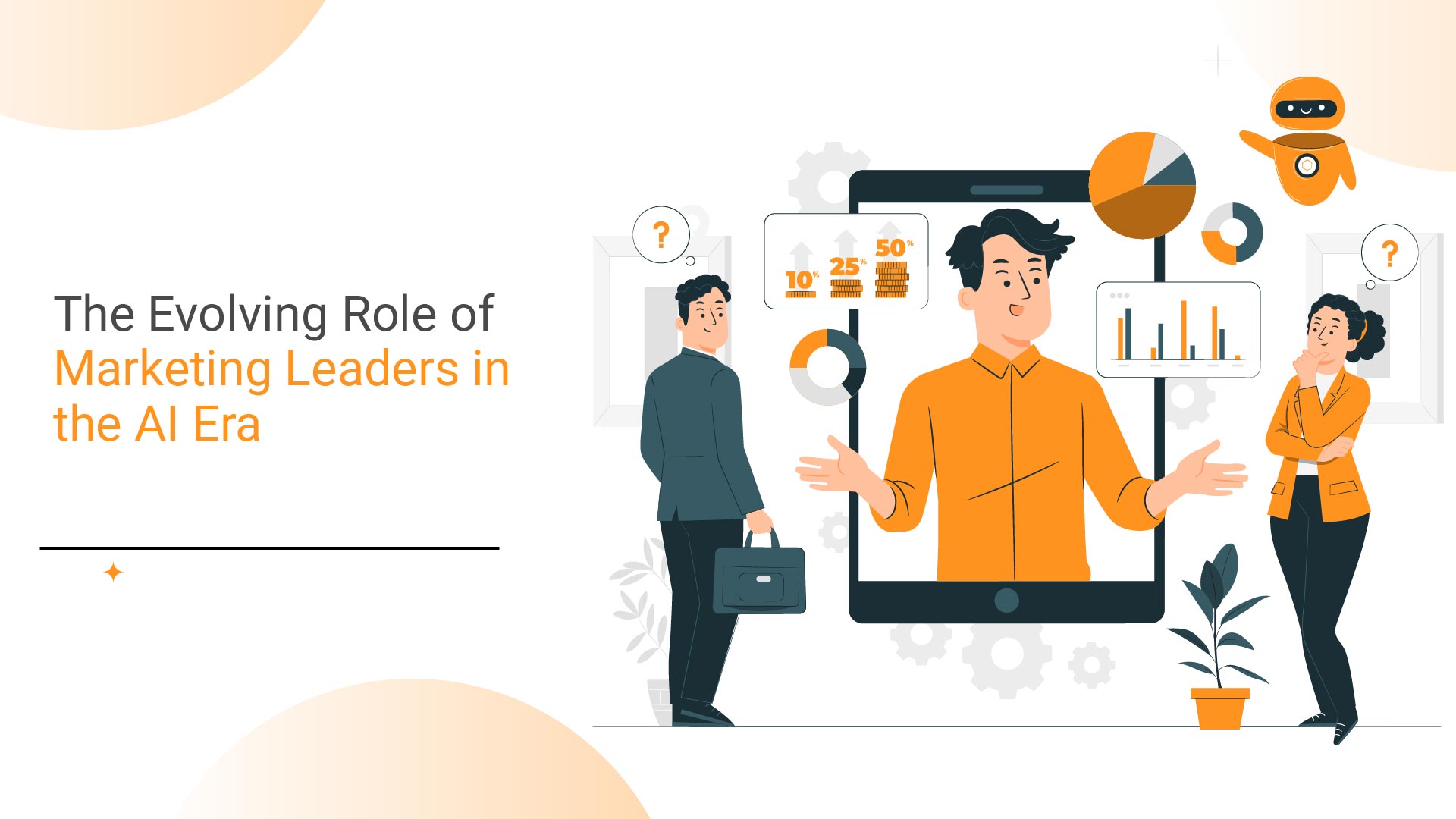

artificial intelligence marketing
The Evolving Role of Marketing Leaders in the AI Era
The Evolving Role of Marketing Leaders in the AI Era
Artificial intelligence is no longer a futuristic concept – it’s reshaping the very core of how we lead, strategize, and engage in modern marketing. As a CMO, I’ve seen firsthand how the expectations for marketing leadership have shifted, from managing brand and pipeline to also owning cross-functional innovation and AI literacy. In this era of accelerated digital transformation, the role of marketing leaders is evolving rapidly, and with it, the imperative to adapt – quickly, strategically, and authentically.
At Accruent, we’re navigating this shift by focusing on five core imperatives that are reshaping how we lead marketing in the age of AI.
Redesign Your Organization for Agility and AI
Just as the ramp up of digital marketing required us to build new teams and skill sets over the past two decades, AI demands a similarly fundamental shift. We’re not just adding a tool – we’re redesigning how we think, operate, and lead. At Accruent, we’re building muscle in three key areas:
1. Cross-team Partnerships: We’re augmenting our team with AI expertise while also tapping into our broader organization’s deep bench of data scientists. These partnerships accelerate innovation and ensure we’re not working in isolation.
2. Team-Wide Upskilling: AI proficiency can’t be limited to a center of excellence. Everyone, from content creators to campaign managers, must understand how to leverage AI in their daily work. We approach this like we did when digital marketing began to transform – with the expectation for everyone to level up.
3. A Culture of Experimentation: With so much uncertainty, we thrive by embracing experimentation. That mindset is embedded into our culture. We host marketing hackathons, reward smart risks, and constantly ask, “What can we try next?”
Rethink ROI to Reflect Strategic Impact
Marketing ROI has always been a cornerstone of our function. But AI forces us to rethink what we measure and how we define success. It’s not just about pipeline generation or spend efficiency – it’s about market relevance, customer trust, and long-term strategic impact.
The most meaningful AI innovations don’t just shave time off processes; they help us show up better for our customers. Whether it’s accelerating market insight generation, personalizing content more effectively, or building smarter lead scoring models, AI is helping us move faster – and with more precision – than ever before.
Create Space for Alignment and Learning
We’ve found that adoption is only sustainable if there’s clarity. That means setting a plan for how AI ties to business strategy, what success looks like, and creating safe spaces for teams to test, fail, and learn.
We’ve built a rigorous operating cadence to keep us aligned: weekly KPI reviews, monthly operations meetings, and strategic quarterly discussions. These aren’t just check-ins – they’re forums to surface trends, share wins, and identify areas for upskilling. When we first noticed AI-generated search results affecting our digital performance, it didn’t come from a top-down memo – it came from our team spotting patterns and bringing them forward.
Lead with Curiosity – and Guardrails The hype cycle around AI is real. But as marketing leaders, we must be clear-eyed about where it adds value – and where it doesn’t. AI is a powerful enabler, but it doesn’t replace critical thinking, ethical consideration, or human empathy. That’s especially important in marketing, where trust, authenticity, and inclusivity are non-negotiables.
We continue to prioritize data privacy, accuracy, and decision-making frameworks to help our teams navigate the gray areas. For early-career marketers especially, we focus on developing the judgment needed to validate AI outputs and align them with brand values.
Make AI Literacy a Market Differentiator
Perhaps the biggest shift I’ve seen is that CMOs can no longer be purely functional experts. We must be enterprise leaders – equipped to guide not only our teams but also our customers. Increasingly, buyers ask us not only what our product does, but what we’re doing with AI. They want to know we’re forward-thinking, not just compliant.
In the last month alone, I’ve had AI conversations with customers ranging from government entities to large retail chains. They’re not always sure how they want to use AI – but they expect us to know. It’s our job to bridge that gap, articulate the business value, and help them imagine what’s possible.
A Future That’s Fast – and Human
The rapid pace of change is undeniable. But as I reflect on my own growth as a CMO over the past five years, one thing stands out: marketing leadership today is about more than ROI, brand campaigns, or tech stacks. It’s about cultivating a high-performing team, staying relentlessly close to the customer, and guiding our organizations through uncertainty with clarity, humility, and vision.
In the AI era, we’re not just transforming marketing – we’re transforming how we lead. And that, more than anything, is our opportunity.
Get in touch with our MarTech Experts.

Kristi Flores
Kristi Flores is Chief Marketing Officer at Accruent, where she leads global marketing, communications, partner programs, and demand generation worldwide. Her team drives business growth and advances Accruent’s mission to unify the built environment. Previously, she served as CMO at Tektronix, where she spent 14 years in various leadership roles. Kristi holds a B.A. from Willamette University and began her career at Planar Systems in marketing and sales.




